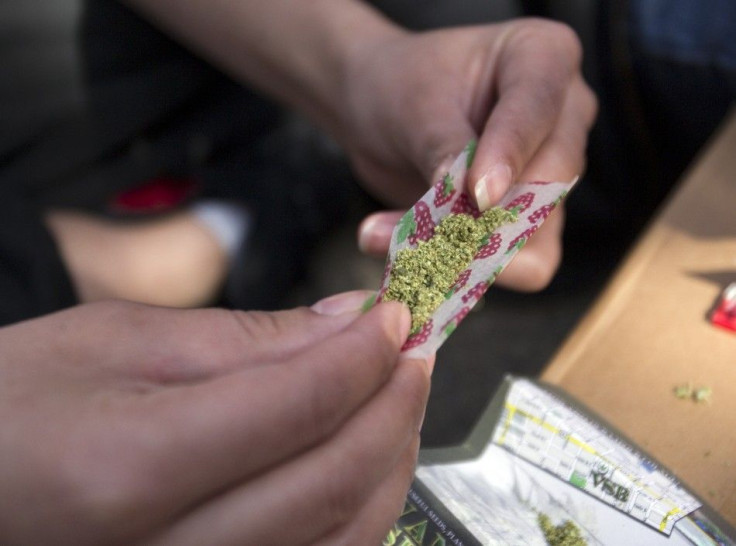Colorado’s ‘Pot Tourism’ Regulations Still Hazy

Colorado airports may soon feature signs warning against the export of marijuana amid growing fears the state's new law legalizing the drug could lead to a rise in “pot tourism.”
The constitutional amendment approved by voters in November allows adults over 21 to purchase marijuana, but it doesn’t specify whether this applies exclusively to Colorado residents. Critics worry that traffickers from other states could take advantage of a burgeoning pot tourism industry by moving marijuana across state lines and throughout the country.
The Amendment 64 Implementation Task Force, made up of law enforcement, government officials and marijuana advocates, concluded earlier this month that out-of-state visitors should be able to buy a limited amount of marijuana, so long as they don’t take it home with them. If lawmakers agree with the recommendations, tourists would be free to buy and smoke marijuana in Colorado.
“In order to discourage the diversion of legally purchased marijuana out of Colorado, reduce the likelihood of federal scrutiny of Colorado’s adult-use marijuana industry, and support harmonious relationships with Colorado’s neighboring states, an appropriate limit should be placed on the amount of marijuana or marijuana-infused products that can be purchased by out-of-state consumers,” the task force wrote.
“Additional actions should also be taken to limit diversion out of Colorado, such as point-of-sale information to out-of-state consumers, signage at airports and near borders, coordination with neighboring states regarding drug interdiction, and restricting retail licenses near the borders.”
Although tourists could see purchasing caps as low as an eighth of an ounce per transaction, many state lawmakers are unclear how they can enforce the drug’s transport across borders.
Members of the legislature’s “joint marijuana committee” (no pun intended) met Friday to begin discussing 58 recommendations made by the task force. The ad-hoc committee debated late into the night, but agreed on just one item, the noncontroversial “responsible vendor” language, which allows future pot shops to enlist employees for training.
The panel has yet to discuss measures to discourage marijuana tourism and limits to out-of-state residents. Lawmakers have until the end of March to write the task force’s recommendations into a bill, which would then have to be approved during the current legislative session, which ends May 8.
Colorado must begin accepting applications from businesses interested in selling marijuana in the fall, while the first shops could open by Jan. 1, 2014.
Tourism is Colorado’s second-largest industry, and many in the field spoke out against marijuana legalization before the vote in November.
“Colorado’s brand will be damaged, and we may attract fewer conventions and see a decline in leisure travel,” Visit Denver Chief Executive Richard Sharf warned. He added that it could hurt the local economy and the state’s chances of attracting future world-class events.
Visit Denver representatives have declined to comment further until the state's legislature enacts its new marijuana rules; however, Sharf’s question remains: Will legalizing marijuana draw people in or scare them away?
The latest data from the Colorado Tourism Office shows that 58 million travelers visited the state in 2011. Some, like Arthur Frommer, of Frommer’s Travel Guides, have predicted Colorado and Washington, which also voted to legalize marijuana last year, will be top tourist spots.
“Expect a torrent of new tourism to Seattle and Denver,” Frommer wrote on his blog.
In Washington, well-respected travel guru Rick Steves has become a spokesman for the state’s campaign to legalize marijuana, organizing a 10-city tour to explain why a businessman such as himself would vote yes on Initiative 502.
“Because of my travels, I find myself one of the most high-profile people in the country advocating the reform of our nation's marijuana laws,” Steves said. “I am certainly not ‘pro-drugs.’ I simply appreciate how much of Europe treats its drug problems in a pragmatic way, with success measured by harm reduction rather than incarceration. While in the U.S.A., 80,000 people are in jail for marijuana charges, in parts of Europe, discreetly smoking a joint is just another form of relaxation.”
In addition to an expected tourism boom, Colorado and Washington could also benefit financially.
Analysts have projected Colorado alone will generate anywhere from $5 million to $22 million a year from marijuana legalization, while pro-marijuana groups project as much as a $60 million boost by 2017.
© Copyright IBTimes 2024. All rights reserved.






















